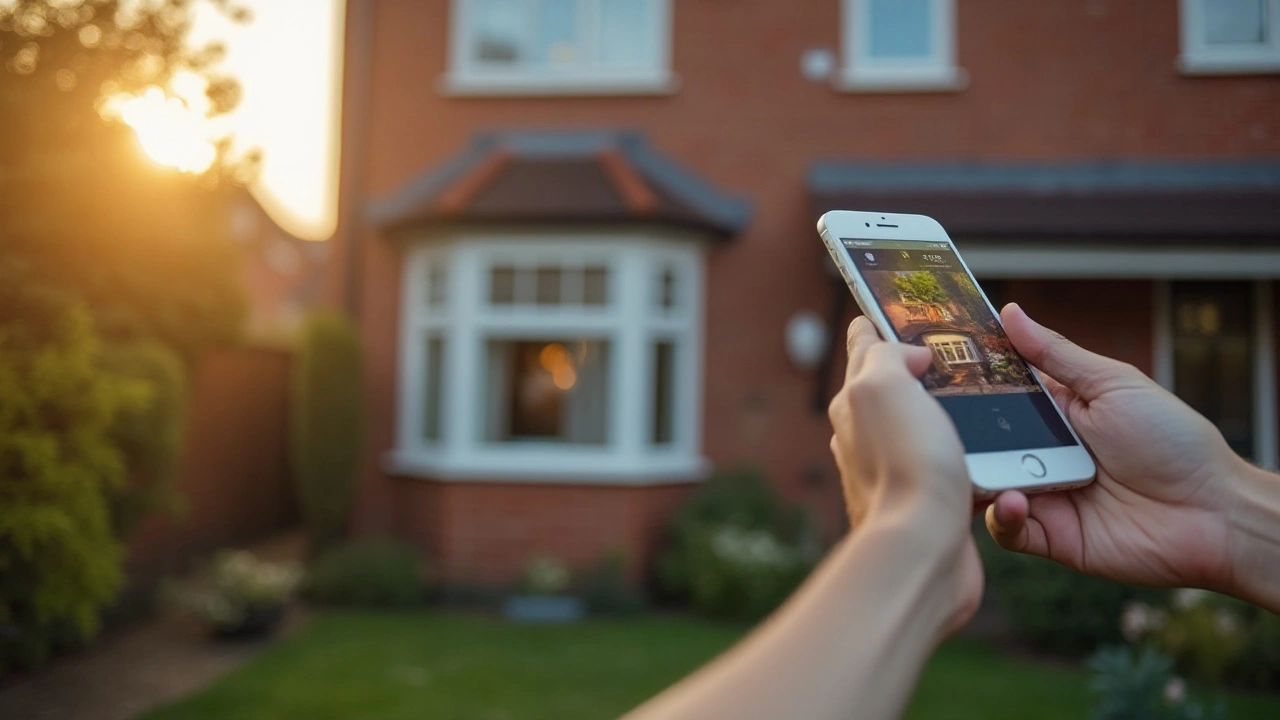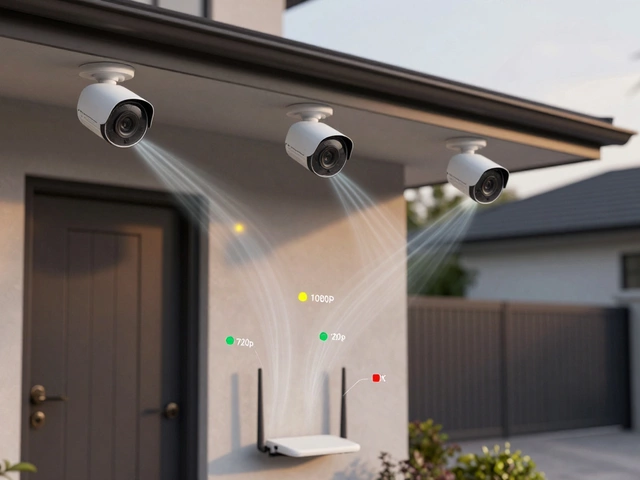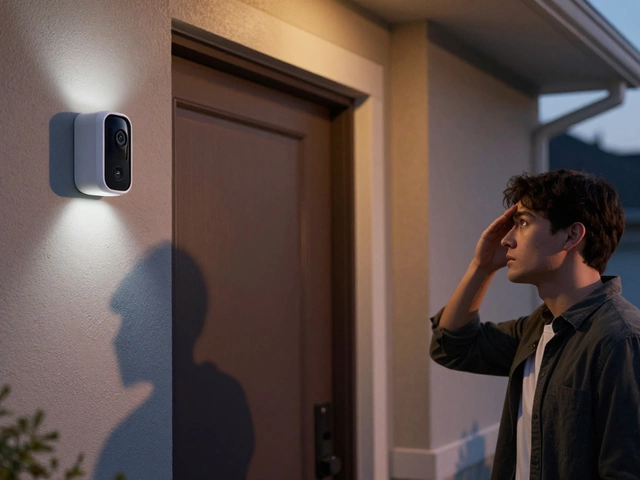There's a growing trend of enhancing our homes with security systems designed to ward off any unwanted guests. Wireless alarm systems have quickly become a staple in home security due to their ease of installation and flexibility. But as our lives become more connected, you might wonder if such systems can function independently of the internet.
Understanding the dynamics between wireless alarm systems and internet connectivity can help you decide which setup aligns best with your security needs. While having internet capability introduces features like remote access and real-time notifications, it's important to know if it's an absolute necessity for every homeowner.
- Understanding Wireless Alarm Systems
- Role of Internet in Alarm Functionality
- Benefits of Internet-Enabled Alarms
- Choosing the Right Wireless Alarm System
Understanding Wireless Alarm Systems
The evolution of security systems into the wireless realm marks a significant advancement for homeowners seeking effective, yet convenient protection solutions. Wireless alarms have surged in popularity due to their ability to operate without complex wiring, utilizing radio frequencies to communicate between sensors and the central control unit. This makes installation straightforward and versatile, allowing placement of sensors in optimal locations without constraints imposed by wires. Such systems are efficient in homes, offices, or just about any place seeking an enhanced security setup.
A wireless alarm system typically comprises motion sensors, door/window sensors, and a main control panel. The sensors detect unusual activity, sending signals to the control panel, which then triggers the alarm or alerts you via a mobile app or display panel. Unlike their wired counterparts, these systems can integrate with other smart home devices, providing a seamless experience in a tech-savvy household. Notably, many models include backup batteries, ensuring continued operation even during power outages, which is a significant benefit in reliability.
There often arises a debate about the reliability and security of wireless alarms compared to traditional systems. A study by the National Association for Home Builders revealed that more than 60% of surveyed homeowners preferred wireless alarms for their ease of installation and potential for smart technology integration. Wireless systems adopt encryption technologies to safeguard communications from tampering, providing peace of mind regarding data security. Thus, despite the absence of wiring, these systems offer solid security foundations.
One might question whether the lack of wires compromises performance or range. Interestingly, some high-quality wireless systems boast impressive ranges, covering even large properties adequately. For those living in dense urban environments or multi-story homes, repeaters can extend coverage, ensuring consistent performance and connectivity. Moreover, wireless systems are scalable, allowing you to add more sensors or components as your security needs evolve, which is particularly advantageous for growing families or expanding office spaces.
According to a security expert from Consumer Reports, "For many homeowners, the appeal of wireless alarm systems lies not just in security, but in their adaptability and ease of use." This highlights how these systems cater not only to security needs but also to user convenience, fostering a more personalized security network.
For those contemplating a move to wireless alarms, understanding these systems' components and capabilities is crucial. Whether you're tech-savvy and interested in integrating alarms with a smart home system, or you prefer a straightforward, reliable security setup, wireless alarms present a feasible option. As technology continues to advance, these systems will likely incorporate even more features, propelling them further into the forefront of home security solutions.
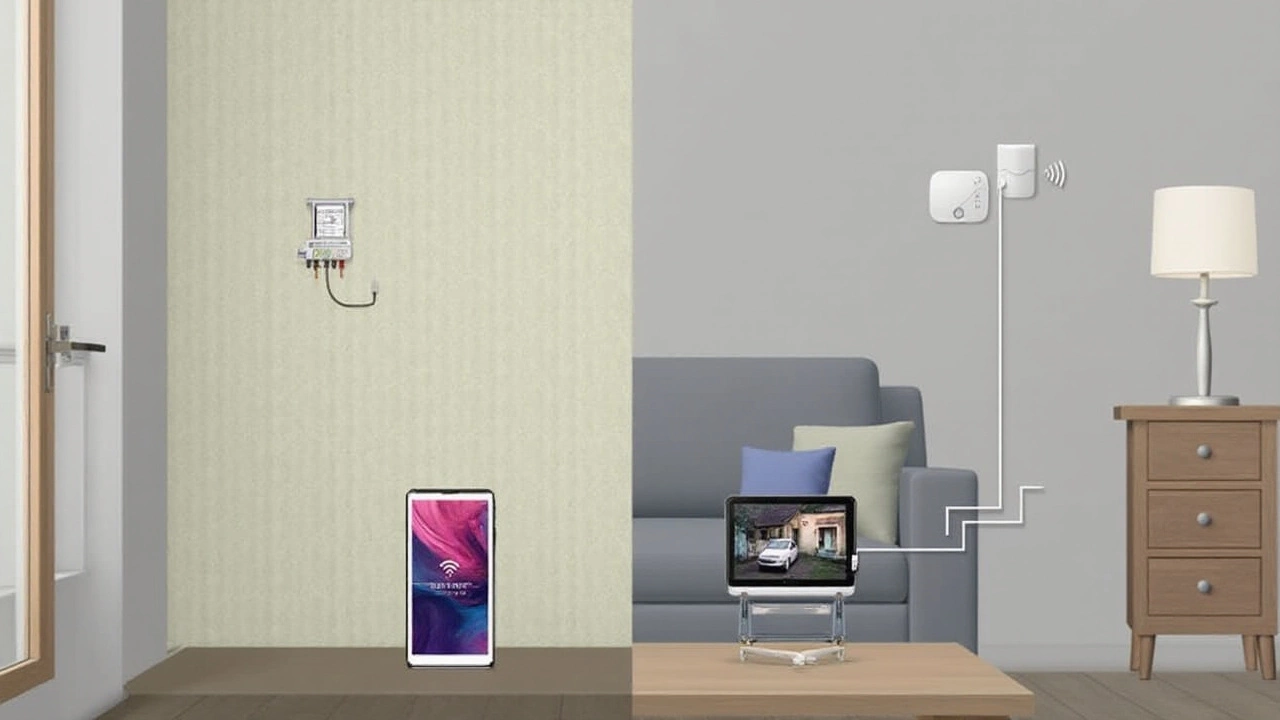
Role of Internet in Alarm Functionality
The world of wireless alarms is a fascinating interplay between technology and security. At the heart of this lies the question: how essential is the internet for these systems? Not every wireless alarm needs an internet connection, but having one opens a realm of possibilities. For starters, the internet transforms a basic alarm into a smart security system, providing homeowners with the ability to access and manage their systems remotely. This convenience is particularly useful for those who travel frequently or are often away from home.
Remote access is one of the marquee benefits that the internet brings to a wireless alarms system. Through dedicated apps, users can control their home security settings, arm and disarm the system, and monitor live camera feeds, all from their smartphones or tablets. This feature ensures that homeowners remain connected to their home no matter where they are in the world. For example, if you receive an alert about a potential intrusion, you can quickly verify if it's an actual threat or just a false alarm, saving you peace of mind and, on occasion, unnecessary trips back home.
Besides remote access, internet connectivity allows for the integration of other smart home devices. Consider this: you've got a security camera, a smart lock, and a motion sensor, all working in tandem thanks to internet connectivity. Such integrations not only boost security but can also automate routine tasks, like locking doors or adjusting lights based on detected motion. A study found that homes equipped with internet-enabled security systems experienced a 30% reduction in break-ins, underscoring the value of connected systems.
Then, there's the aspect of real-time notifications. When your wireless alarm is connected to the internet, you receive alerts directly on your device in real-time. This includes everything, from motion detection and open windows, to smoke alarms going off. With internet connectivity, these alerts are instant, unlike systems reliant solely on cellular networks or local connections. Hence, you're always in the loop about what's happening in your home, even if you're halfway across the globe.
"Internet connectivity in modern wireless alarm systems is akin to giving an old school security guard a walkie-talkie. It keeps homeowners informed and in control, no matter the distance," says security expert, Michael Rowe.
For those concerned about privacy and data security, it's crucial to understand how internet connectivity might pose some risks. Internet-connected devices can be susceptible to cyber attacks if not properly secured. Ensuring your system uses robust encryption protocols and regularly updating passwords can mitigate such issues. It's akin to giving your house a digital lock alongside the physical one provided by the alarm.
To wrap up this segment, while home security systems can function without the internet, embracing it opens a new layer of security and convenience. The internet essentially serves as the bridge to a smarter, more responsive security experience. It's not just about bells and whistles; it's about transforming your home into a proactive sanctuary against threats. The interplay of wireless technology and internet connectivity is a dynamic duo that more and more homeowners are taking on board.
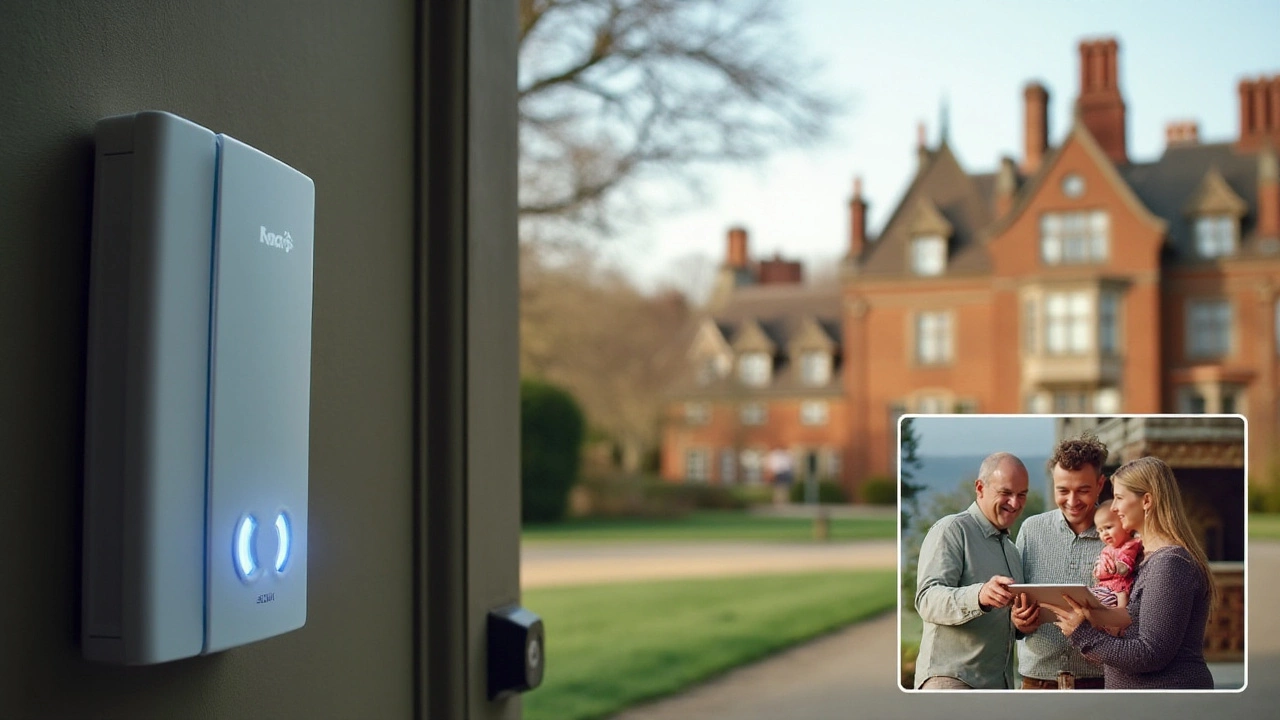
Benefits of Internet-Enabled Alarms
Consider the days when security systems were static, mere setups of sensors and alarms. Today, the landscape has shifted dramatically with the advent of the internet. One of the primary advantages of internet-enabled wireless alarms is their ability to offer real-time alerts. Imagine a scenario where you're miles away from home. An internet-connected alarm system can instantly notify you of any unusual activities through smartphone notifications. This immediate awareness empowers homeowners to take necessary action, whether that means alerting local authorities or checking the live feed of security cameras.
Another pivotal benefit is remote access, a feature that modern travelers and busy professionals find invaluable. With internet-enabled alarm systems, you gain the ability to arm or disarm your system, inspect sensor statuses, and even control smart home devices. This kind of flexibility ensures that you're never too far from controlling your home’s security, providing peace of mind, especially when living a lifestyle that demands frequent travel.
"Having a security system connected to the internet provides not only convenience but also an enhanced layer of security due to its ability to offer real-time data," explains Paul Rosenthal, a home security expert from SafeWise.
Moreover, these systems can seamlessly integrate with other smart home technologies. Whether it's adjusting the thermostat, switching lights on or off, or locking doors, everything can be done through unified smart platforms, often managed via a single app. This synchronicity represents a leap in home automation, effectively merging security with smart living. Enhanced data collection and analytics is another advantage. Internet-enabled systems can collate data on security events, helping users to understand potential vulnerabilities in their home security patterns. Such insights can be powerful in reshaping and tightening security protocols at home.
Additionally, there's the aspect of scalability with these systems. As your security needs grow, perhaps due to home expansions or changes in neighborhood dynamics, these alarms can be updated or expanded more easily compared to their non-internet counterparts. Wireless alarms that rely on internet connections often come with dedicated customer support teams accessible via online platforms. This support can assist with troubleshooting issues or enhancing the system's functionality as system features get increasingly sophisticated.
It's also worth mentioning the potential for lower insurance premiums. Many insurance companies recognize the added layer of protection and the reduced risk associated with internet-enabled alarm systems. As such, they often offer reduced rates for homeowners who install these alarms. Having a guard against possible losses doesn't just provide security peace of mind but can also have economical benefits. In essence, the coupling of internet technology with home security systems brings a world of proactive and tangible advantages, marrying convenience with robust safety measures.

Choosing the Right Wireless Alarm System
When the security of your home is on the line, selecting the right wireless alarm system is paramount. It requires more than just a skim through product reviews — it demands a thoughtful evaluation of features that align with your specific needs. The market is flooded with options, each boasting a range of technological advancements, so narrowing down the essentials can feel daunting. To begin, determine the primary goal of your alarm system. Is it for basic security monitoring, or do you require advanced features like video surveillance and home automation?
Understanding whether an internet connection is necessary hinges on your goals. Systems that offer remote monitoring and control through apps invariably need reliable internet service. These features allow you to receive instant alerts and even tweak settings from anywhere in the world. However, if traditional sound alarms are your focus, a system operating independently of the internet may suffice. A consumer report once concluded that certain home security systems operate as efficiently without internet, providing peace of mind to homes in areas with unreliable connectivity.
Evaluating Essential Features
Apart from internet connectivity, other key considerations include the type of sensors, battery life, ease of installation, and the option for professional monitoring. Sensor variety, such as motion detectors, glass-break sensors, and door/window contacts, can be mixed and matched based on the unique layout of your home. Long-lasting battery life ensures your system remains functional even during power outages. "A reliable alarm system is one that suits your home’s structural nuances," suggests a seasoned technician from a leading security agency.
Ease of installation is another factor; some systems are DIY and can be set up within an afternoon, while others might warrant professional installation. The prospect of professional monitoring, though adding to monthly costs, can prove beneficial with its promise of swift emergency response. A balance between budget and these features often guides the ultimate decision. It's also useful to examine warranties and customer support services offered by different brands.
Cost vs. Value
The cost of wireless alarms can vary significantly based on added capabilities and brand reputation. Generally, more features translate into higher costs. An essential strategy is to distinguish between features you truly need versus those that seem appealing but provide negligible additional security. This cost-benefit analysis ensures you get maximum output without stretching your wallet needlessly. Investing in a trusted brand might seem more expensive upfront but often results in fewer technical glitches and better service.
For those uncertain about what their home security setup should entail, consider speaking with a security consultant. They can provide tailored advice by assessing your property and recognising unique vulnerabilities. Their expert insights, couched in years of experience, bring clarity amidst the conundrum of choices you face, ultimately steering you towards the right alarm systems suited to your security needs.
"Choosing a wireless alarm that adapts to your home’s specific needs rather than adopting a one-size-fits-all approach ensures comprehensive protection," says Jamie Cortland, a noted expert in home security systems.

